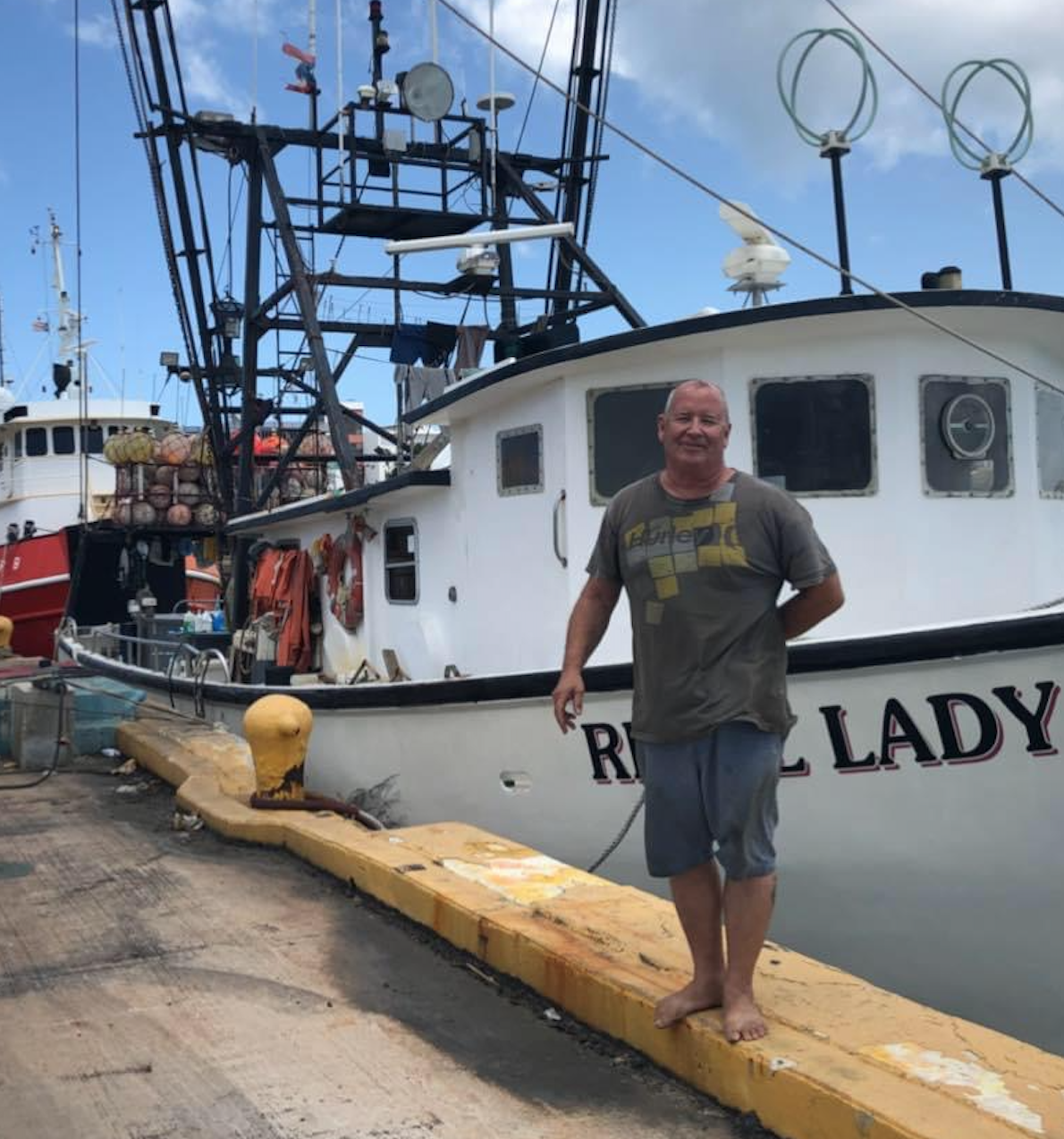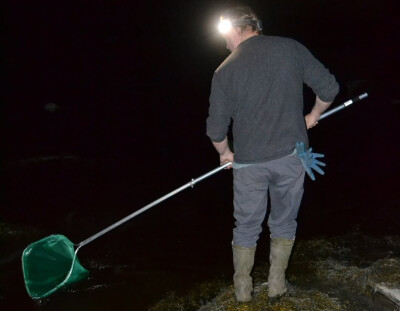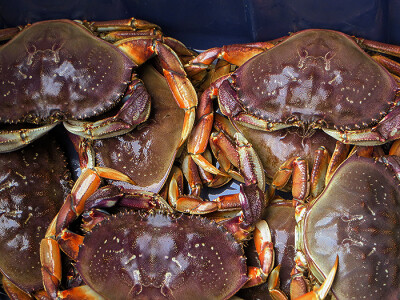Family and friends of an American longline captain are pressing the U.S. government to help free him from jail and return his boat that was seized after he was led by customs officers into a British Virgin Islands port.
Michael Foy, 60, of Manahawkin, N.J., has been jailed in Tortola since June 11, initially charged with illegal entry in violation of the island’s covid-19 precautions, then with a charge of illegal fishing — although he had been fishing south of Puerto Rico, far away from BVI waters.
Foy’s family says his vessel Rebel Lady was laid-to offshore June 8, waiting for clearance to enter the port of Road Town as he had done many times before. He and his crew were approached by BVI authorities and instructed to follow their boat into port. Foy was under the impression that he was getting customs clearance. Instead, to his surprise, he was taken into custody by officers at the dock, and the Rebel Lady was impounded.
Initially charged with illegal entry, Foy was also charged a few days later with not arriving at an “authorized port,” and with operating an unlicensed or unregistered fishing vessel — a move that suddenly jacked up potential penalties to $511,000.
Foy’s family and other fishermen have pressed the U.S. State Department for action, invoking a 1970s law called the Fishermen’s Protection Act. According to a summary of its provisions, the law requires that the federal government, “after a U.S. vessel has been seized by a foreign government, to take such steps as are necessary to protect the vessel and the health and welfare of its crew; to secure the release of such vessel and the crew; and to determine the amount of any fine, license fee, registration fee, and any other direct charge that is reimbursable.”
“He’s lost his catch, so he’s got no way to pay for that,” said friend and fisherman Jim Budi of the American Sword and Tuna Harvesters trade group. “Unless the State Department steps in, everyone’s pretty pessimistic.”
After being denied bail a second time, Foy is awaiting a trial now scheduled for Sept. 9. He and supporters are counting on some key evidence to show he was working at sea legally — from the vessel monitoring system that the Rebel Lady, like other U.S.-flag longliners, is required to carry by NMFS.
“We’ve got cameras, we’ve got VMS data,” said Joe Foy, the captain’s brother in Florida who reached out to NMFS officials for help.
“It doesn’t make any sense,” said Andrew Minkiewicz, a lawyer with the Washington, D.C., firm Kelley Drye & Warren who is helping the family. “He wasn’t even in their territorial sea. From what I can tell from the coordinates he was a little over six miles out, and they only claim three (miles out).”
After early news reports of the seizure, prosecutors issued a brief statement July 17 portraying their version of events, contending that Foy sought entry but “permission was sought and denied by the Chief Immigration Officer as the borders of the Territory were closed as part of the territory’s response to the COVID-19 pandemic.”
Now the situation is complicated further by a new British Virgin Islands government decision to impose a daily 1 p.m. to 5 a.m. curfew over the next 14 days to control a spike in covid-19 infections, which could preclude any jail visits and delay the captain’s strial, Foy’s sister Kimberly Foy Kelly reported.
A longtime captain who started in the Barnegat Light, N.J., longline fleet, Foy has most recently based out of San Juan, Puerto Rico, fishing on his U.S.-flagged vessel with four longtime Indonesian crewmen. In season, their trips typically involve six to seven sets, looking to deliver highest quality iced “seven-day fish,” mostly yellowfin tuna, swordfish, and the occasional albacore and opa, said Joe Foy.
By U.S. law, foreign crewmen on his boat need to clear local customs at a foreign port every 29 days before returning to Puerto Rico. Foy’s family says he had been clearing through Tortola over the past year — most recently April 27 without any problems, weeks after BVI authorities had already begun their covid-19 entry precautions.
Under that procedure, when Foy knows the timing of his last set, he contacts his agent Tommy Forte in Puerto Rico, who then arranges with a shipping agent in Tortola to coordinate with customs.
Rebel Lady is met at the port by a local shipping agent with clearance documents for Foy and his crew, who stay on the boat after BVI customs and immigration officials stamp their passports, then head back to Puerto Rico, said Joe Foy.
On this trip, Foy called Forte June 1 to tell him how the first day’s longline sets had brought in phenomenal catches of yellowfin. They began to plan on how much more time it would take to fill the fish hold.
By June 4, the boat was already full of what would have been a week’s catch on a larger vessel, and Foy and Forte agreed any more fish might crash the markets in Puerto Rico and Miami, already fragile from covid-19 restrictions.
Forte got in touch with his Tortola contact and customs to set up the clearance for Rebel Lady, and by June 8 Foy and his crew were waiting offshore to hear their clearance was ready.
After his arrest that day, Foy learned of the additional charges at a June 11 court hearing, and the prosecutor told Foy’s local defense attorney Paul Edwards that the government wanted to force forfeiture of the boat and sale of more than 8,000 pounds of fish on board.
Foy’s family got his New Jersey congressional delegation of Sens. Robert Menendez and Cory Booker and Rep. Andy Kim, all D-NJ, to send a statement to government officials in Tortola June 30. The captain’s friends in the U.S. pelagic fisheries fleet sent testimonial letters about his experience and reputation.
“Captain Foy has always been and I’m sure this time also was progressing as to the letter of the law,” longline captain Tony Geisman wrote in one letter to Tortola authorities. “I’ve always known this to be the case with him offshore fishing as well as Port entry’s and exits. I’m sure there was no intent to break or circumvent BVI law.
“As a captain myself I know Captain Foy’s worries and his responsibilities lie with his boat and crew. I would respectfully ask you to consider some type of house arrest for Captain Foy until the matter is resolved. This would allow him to get out of prison to take care of his crew and vessel.”
“The conditions that Mike is being kept in are deplorable,” his sister Kimberly Foy Kelly wrote in a narrative of the case. “He has rats and cockroaches in his cell, so you can imagine many nights he goes without much sleep. For the first two weeks he had no toothpaste/brush, soap, towel, shower, clothes and we found out he has been in the same underwear for the past 36 days. His dinner consists of bread and sweet tea.
“Michael's first question when he gets a phone call is about his crew. They have been a second family to him for many years.”
The family learned July 29 that the Rebel Lady had been hauled, put in dry storage on the hard and de-fueled. That’s raised suspicions among other U.S. fishermen that the boat itself is being targeted as the real prize.
“Forfeiture is something they can do is he is found guilty,” said Minkiewicz. “They definitely want that boat. When the first storms of this (hurricane) season were coming that gave them the excuse to move it.”
The danger of losing his boat is another reason Foy is determined to fight the charges, he said. Meanwhile, the Indonesian crew members are confined to an island hotel. The BVI authorities “are not sure what to do with them,” said Minkiewicz. “They have not been charged with anything.”
Now Kelly says the government’s latest shutdown plan will apparently cut off food deliveries for the crew, and potentially delay the captain’s trial.
Foy’s supporters say their arguments for releasing the captain have been countered by some British Virgin Islands residents, who assert any foreign fishermen would be treated harshly for violations in U.S. waters.
But that’s not true, Minkiewicz says.
“Much to the frustration of U.S. fishermen, they just send them on their way. It’s catch-and-release,” said Minkiewicz. “The Coast Guard is not happy about it.”
The glaring example is repeated incursions into Texas waters by Mexican crews in small lanchas, poaching red snapper. They are regularly intercepted by Coast Guard and Texas state authorities, but the Department of Justice opts not to prosecute them in the face of other pressing demands, said Minkiewicz.







